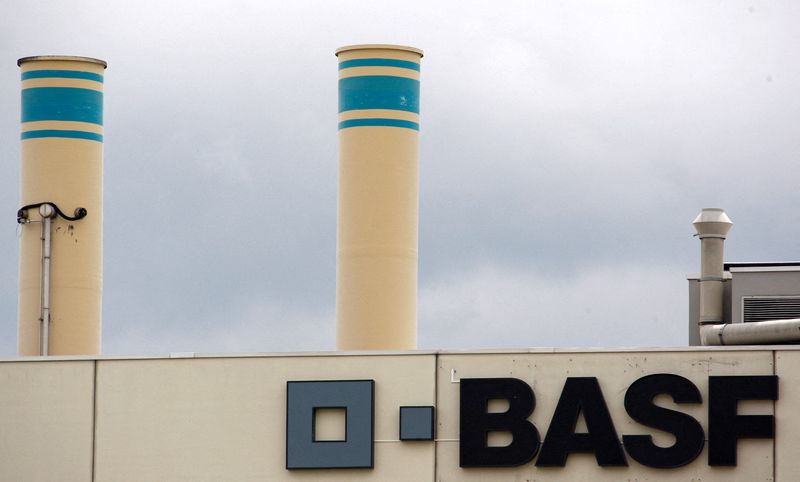By Bartosz Dabrowski, Olivier Sorgho and Jagoda Darlak
(Reuters) - Makers of metals, chemicals and gases said on Tuesday that the outlook for the final months of the year had worsened as concerns intensify that a surge in energy and raw material costs will shrink Europe's heavy industry.
French industrial gases company Air Liquide (OTC:AIQUY) flagged slowing demand from some customers in Europe while Swedish steel maker SSAB said it will cut capacity in the fourth quarter as demand in Europe slows. It already cut construction-related volumes in the quarter to end-September.
German chemicals maker Covestro lowered its 2022 earnings guidance for the third time this year, blaming gas and raw material prices.
The company, whose main products include foam chemicals used in mattresses, car seats and insulation for buildings, said it was only able to offset part of the rise in costs through higher prices.
Gas prices in Europe have eased in response to an unusually warm October and projections of a mild winter.
But the continent is paying five time more for its gas than the United States, stirring concerns the region will struggle to compete on the global market in the long term.
"A mild winter alone can’t save the day in Europe. Growth is slowing, the European Central Bank (ECB) is tightening, while the single currency remains weak," Ipek Ozkardeskaya, senior analyst at Swissquote Bank, said.
BASF, the world's largest chemicals company, has reduced production of ammonia, a nitrogen fertiliser and input for engineering plastics and diesel exhaust fluid. The group, which relies heavily on natural gas, is buying from outside Europe, where prices are lower.
Data has also highlighted the impact. Euro zone manufacturing activity this month hit its weakest level since May 2020.
The downbeat manufacturing outlook is in contrast to food and consumer products companies, including Nestle and Procter & Gamble (NYSE:PG), which have passed on higher prices for goods ranging from Nescafe coffee to Gillette razors.
RACE TO CUT COSTS
Companies across Europe are racing to reduce their energy use ahead of the winter when demand increases as households turn up the heat.
For example, Covestro said on Tuesday it is using digital sensors to monitor its steam traps, which means it is using steam as efficiently as possible in production.
Chemical companies are among the hardest hit by the energy crisis because they use gas as a raw material for production and as an energy source.
Swedish engineering group Alfa Laval on Tuesday launched a cost-cutting drive that could affect around a tenth of its workforce after a weak tanker market and soaring costs hit its marine business.

Mercedes-Benz has laid out measures to reduce gas consumption by up to 50% but has yet to manage a cut of more than 10%, while Volkswagen (ETR:VOWG_p) has explored short-term measures such as stocking parts on ships and trains and, in the medium term, switching to suppliers abroad.
($1 = 1.0121 euros)